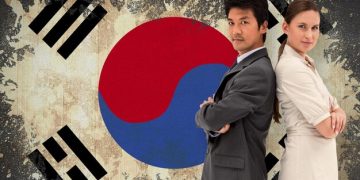The Power of Nostalgia: Classic Drama Remakes and Modern Audiences

The Power of Nostalgia: A Review of Classic Drama Remakes and Their Impact on Modern Audiences explores how revisiting and reimagining beloved dramas can evoke powerful emotions, bridge generational gaps, and offer new perspectives on timeless stories.
The exploration of **the power of nostalgia: a review of classic drama remakes and their impact on modern audiences** reveals the enduring appeal of beloved stories reimagined for new generations.
Unveiling the Nostalgic Appeal of Drama Remakes
Classic dramas hold a special place in our hearts, often representing formative experiences and shared memories. Remakes tap into this powerful emotion, offering a chance to revisit familiar narratives with a fresh perspective.
But what exactly is it about revisiting these stories that resonates so deeply?
The Comfort of the Familiar
One of the primary appeals of drama remakes is the comfort of the familiar. We are drawn to stories we already know and love, finding solace in the predictability of the plot and characters.
This sense of comfort is especially appealing in times of uncertainty, providing a sense of stability and continuity.
A Bridge Between Generations
Remakes can also serve as a bridge between generations, introducing classic stories to new audiences who may not have otherwise encountered them. This can spark meaningful conversations and shared experiences between family members and friends from different age groups.
- Introducing classics to younger generations.
- Creating common ground for discussions.
- Preserving cultural heritage through storytelling.
Ultimately, the nostalgic appeal of drama remakes lies in their ability to transport us back to cherished memories, while also offering a new and exciting way to experience beloved stories.

Modernizing Classic Narratives: A Balancing Act
Successfully modernizing a classic drama requires a delicate balancing act. While it’s essential to update the story for contemporary audiences, it’s equally important to preserve the essence of the original.
Finding this balance is crucial for a remake to resonate with both longtime fans and newcomers alike.
Updating Themes and Context
One way to modernize a classic narrative is to update the themes and context to reflect contemporary sensibilities. This might involve addressing issues such as gender equality, racial diversity, or social justice that were not explicitly explored in the original.
However, it’s important to approach these updates with sensitivity and respect for the original work.
Visual and Stylistic Transformations
Modern remakes often feature significant visual and stylistic transformations compared to their source material. This might involve updating the costumes, set design, or cinematography to create a more contemporary aesthetic.
- Contemporary costume and set designs.
- Modern cinematography techniques.
- Updated musical scores.
While these changes can enhance the viewing experience for modern audiences, it’s important to ensure that they don’t detract from the emotional impact of the story.
Successfully modernizing a classic drama involves a careful consideration of which elements to preserve and which to update, ensuring that the remake remains true to the spirit of the original while appealing to contemporary audiences.
The Impact of Remakes: Cultural Preservation or Creative Stagnation?
The proliferation of drama remakes raises important questions about cultural preservation and creative stagnation. While remakes can introduce classic stories to new audiences, they can also be seen as a sign of a lack of originality in the entertainment industry.
This debate highlights the complex relationship between nostalgia, creativity, and cultural heritage.
The Case for Cultural Preservation
Remakes can play a valuable role in cultural preservation by keeping classic stories alive and relevant for future generations. By reimagining these stories for contemporary audiences, they can help to ensure that they are not forgotten.
This is especially important for stories that reflect important historical or cultural values.
The Argument for Creative Stagnation
On the other hand, some critics argue that the over-reliance on remakes can stifle creativity and lead to a lack of originality in the entertainment industry. They argue that resources should be focused on developing new and original stories, rather than simply rehashing old ones.
This debate underscores the importance of finding a balance between honoring the past and embracing the future.
- Promoting cultural preservation.
- Stimulating creativity in adaptation.
- Balancing novelty and nostalgia.
The impact of remakes is a complex issue with valid arguments on both sides. Ultimately, the success of a remake depends on its ability to honor the original story while also bringing something new and meaningful to the table.

Analyzing Critical Reception: What Makes a Remake Successful?
The critical reception of a drama remake is often a key indicator of its success. Factors such as fidelity to the original, originality of interpretation, and overall quality of production can all influence how a remake is received by critics and audiences alike.
Understanding these factors can provide valuable insights into what makes a remake successful.
Fidelity vs. Originality: Striking the Right Chord
One of the biggest challenges for a remake is to strike the right balance between fidelity to the original and originality of interpretation. While it’s important to honor the source material, it’s also important to bring something new and fresh to the story.
Remakes that are too faithful to the original may be seen as unnecessary, while those that deviate too far may alienate fans of the original.
Production Quality and Performances
The overall quality of production, including the directing, acting, cinematography, and music, can also have a significant impact on the critical reception of a remake. A well-made remake with strong performances is more likely to be well-received than one that is poorly executed.
- Quality of acting and direction.
- Cinematic and musical enhancements.
- Overall production finesse.
Ultimately, the success of a remake depends on its ability to capture the essence of the original while also offering a compelling and engaging viewing experience for modern audiences.
Analyzing critical reception requires a nuanced understanding of the various factors that can influence how a remake is received, providing valuable insights into what makes a remake truly successful.
Case Studies: Successful and Unsuccessful Drama Remakes
Examining specific case studies of both successful and unsuccessful drama remakes can provide valuable lessons about the challenges and opportunities involved in bringing classic stories to new audiences.
These examples illustrate the factors that can contribute to a remake’s success or failure.
Successful Remakes: Honoring the Original, Embracing Innovation
Some drama remakes have been lauded for their ability to honor the original story while also bringing something new and meaningful to the table. These remakes often feature strong performances, updated themes, and innovative visual styles.
For example, consider the various adaptations of Shakespeare’s plays, each offering a unique perspective on timeless themes.
Unsuccessful Remakes: Missing the Mark
Other remakes have been criticized for failing to capture the essence of the original or for making ill-advised changes to the story. These remakes may be seen as disrespectful to the source material or simply poorly executed.
- Inadequate script adaptation.
- Miscasting of key roles.
- Poor execution of modern themes.
By studying these case studies, we can gain a better understanding of the factors that separate successful remakes from unsuccessful ones.
Ultimately, the success or failure of a drama remake depends on a complex interplay of factors, including fidelity to the original, originality of interpretation, and overall quality of production.
The Future of Drama Remakes: Trends and Predictions
The future of drama remakes is likely to be shaped by evolving audience tastes, technological advancements, and changing cultural values. Trends such as diverse casting, interactive storytelling, and immersive experiences may play a more prominent role in future remakes.
These trends reflect a growing desire for more inclusive, engaging, and participatory entertainment experiences.
Diverse Casting and Representation
One of the most significant trends in the entertainment industry is the growing demand for diverse casting and representation. Future drama remakes are likely to feature more diverse casts and storylines, reflecting the diversity of the global audience.
This shift towards inclusivity can help to make classic stories more relevant and accessible to a wider range of viewers.
Interactive Storytelling and Immersive Experiences
Technological advancements are also likely to play a role in the future of drama remakes. Interactive storytelling, virtual reality, and other immersive technologies could offer new and exciting ways to experience classic dramas.
- VR and AR integration.
- Personalized storytelling experiences.
- Audience-driven narrative choices.
These experiences could blur the line between audience and performer, creating a more participatory and engaging form of entertainment.
The future of drama remakes is bright, with exciting new possibilities on the horizon. By embracing diversity, innovation, and technology, future remakes can continue to delight and inspire audiences for generations to come.
| Key Point | Brief Description |
|---|---|
| 🎬 Nostalgic Appeal | Remakes offer the comfort of familiar stories, bridging generational gaps. |
| 🎭 Modernization | Balancing updated themes with the essence of the original is key. |
| 🔄 Cultural Impact | Debate centers on cultural preservation versus creative stagnation. |
| 🌟 Critical Reception | Success hinges on originality, fidelity, and production quality. |
FAQ
▼
Classic drama remakes offer a comforting return to familiar stories while presenting them in a new, often more relatable, context for modern audiences. This blend of nostalgia and novelty makes them widely appealing.
▼
Successful remakes carefully update themes and visuals to resonate with current audiences, while preserving the core emotional and narrative elements that made the original dramas beloved and timeless.
▼
Risks include alienating fans of the original by straying too far from the source material, or failing to offer a fresh perspective that justifies revisiting the story in the first place, leading to criticism of lacking originality.
▼
Diverse casts can make remakes more relatable and inclusive, reflecting a wider array of perspectives and experiences. This can enhance the story’s emotional impact and relevance for contemporary viewers.
▼
Technology enables new storytelling methods, such as VR and interactive narratives, that offer audiences immersive ways to engage with remakes. These advancements enhance emotional connection and personalization of the viewing experience.
Conclusion
In conclusion, the power of nostalgia, as seen through classic drama remakes, is a testament to the enduring appeal of timeless stories. These remakes, when executed thoughtfully, can bridge generational gaps, spark meaningful conversations, and offer fresh perspectives on familiar narratives, ensuring that classic dramas continue to resonate with audiences for years to come.





